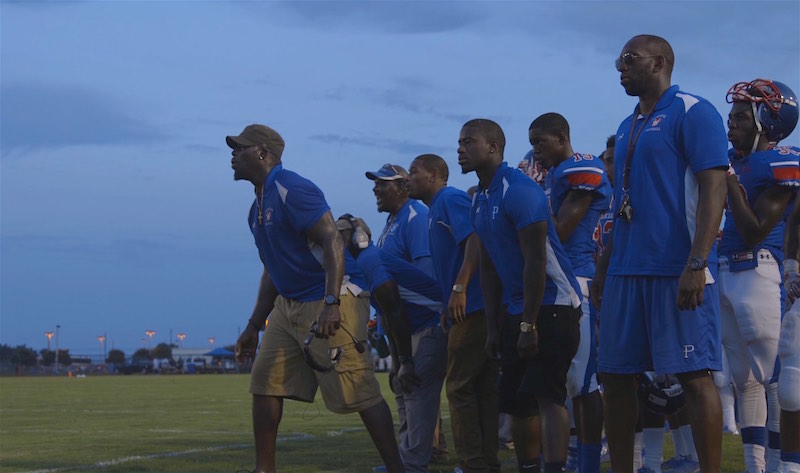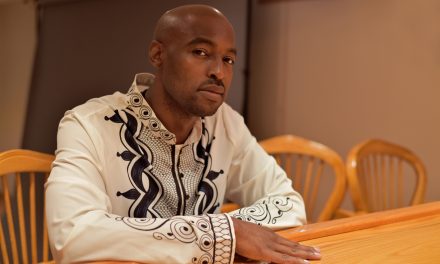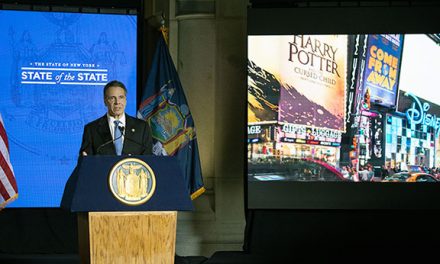Photos provided by the filmmakers.
The pair of filmmakers behind the documentary “The Throwaways,” which examines how black lives are treated as disposable by the criminal justice system, are garnering support and attention for their next project that examines how a black family has lived for years in a small Florida town that has been beset by tragedy, disaster, systemic oppression, epidemics, a lack of basic infrastructure and financial instability.
The Throwaways Trailer from Bhawin Suchak on Vimeo.
“Outta the Muck” by Bhawin Suchak of Albany’s Youth FX and activist filmmaker Ira McKinley received financial backing from Sundance Institution Documentary Film program, Independent Television Service and the Southern Documentary Fund.
The Sundance connection has also come with access to prominent members of the film world including award-winning directors and producers.
McKinley, a former felon who was homeless for a number of years before getting involved in filmmaking and activism, got a chance to meet with a number of filmmakers—even sharing his story and Youth FX’s mission with Ryan Coogler of “Fruitvale Station” and “Black Panther” fame.
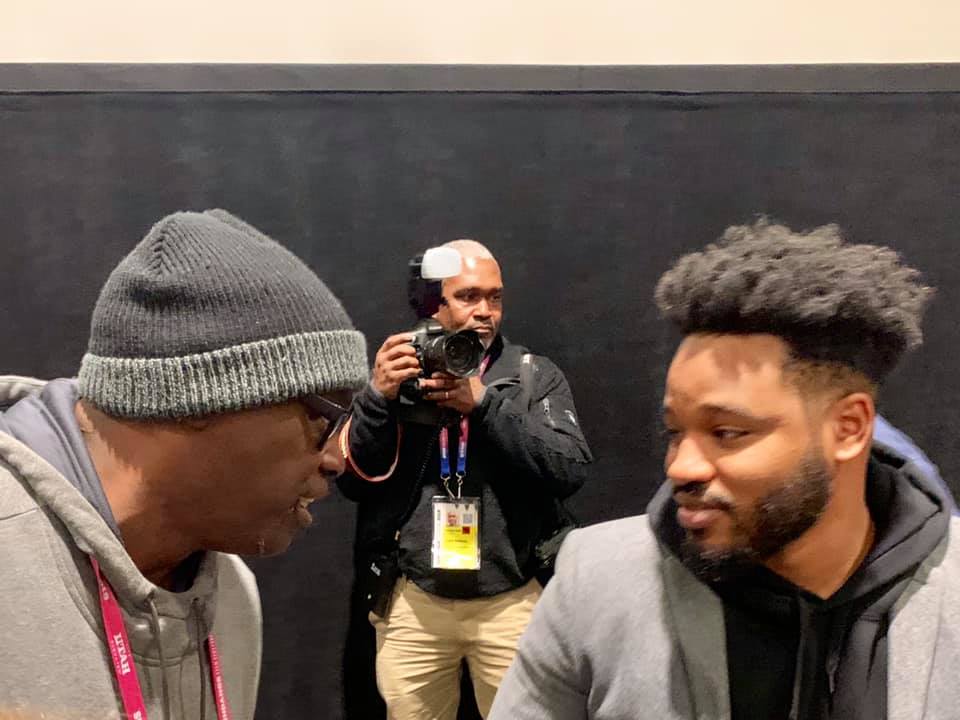
Ira McKinley meets with Ryan Cooler at Sundance.
Thanks to the funding sources they’ve secured and support they are getting from the film community, the pair have been able to refine their vision and devise a way to deliver the kind of film they’ve always wanted to make.
“Instead of racing to the finish line, now we have the ability to make the film we want to make. What scenes do we want to put in, what shots do we want to have—instead of that DIY mentality we had on ‘The Throwaways’ where you get what you can,” Suchak says. Suchak expects the film will air on PBS in 2021, possibly on “Independent Lens.”
The film was always going to focus on the Florida town of Pahokee (population 7,000), where McKinley’s family hails, and the many struggles it has faced over the years. But how to tell that story and why has shifted as the pair discover more of McKinley’s family legacy and delve deeper into the Pahokee community.
In his 1960 documentary “Harvest of Shame,” Edward R. Murrow delved into the plight of migrant farm workers as they traveled from Florida to New Jersey. Murrow intended the documentary to shock Americans with the poor conditions, starvation wages and racism the families faced.
Over the years Florida’s black population was forced off their land by Jim Crow laws and into Pahokee. The area was ravaged in 1928 by the Okeechobee hurricane; thousands were killed, the town destroyed. McKinley’s family moved there shortly after the hurricane and were the first to resettle it.
The economy has been depressed for years. It lacks basic infrastructure, reliable internet is hard to come by and the crack and AIDS epidemic hit the town, and South Florida, very hard. And yet it has become a fertile recruiting ground for NFL players.
“These people are doing what they can with what they have,” says McKinley, who moved to Pahokee from Albany in 2018.
Local children make extra money by chasing rabbits through the fields. Rabbits fetch $5 to $7 a piece. “There is a beautiful desperation here,” says McKinley. “They fish every day, they cookout every day, but they’ve got nothing.” McKinley points out the area isn’t very far away from the opulence of President Donald Trump’s Mar-a-Lago.
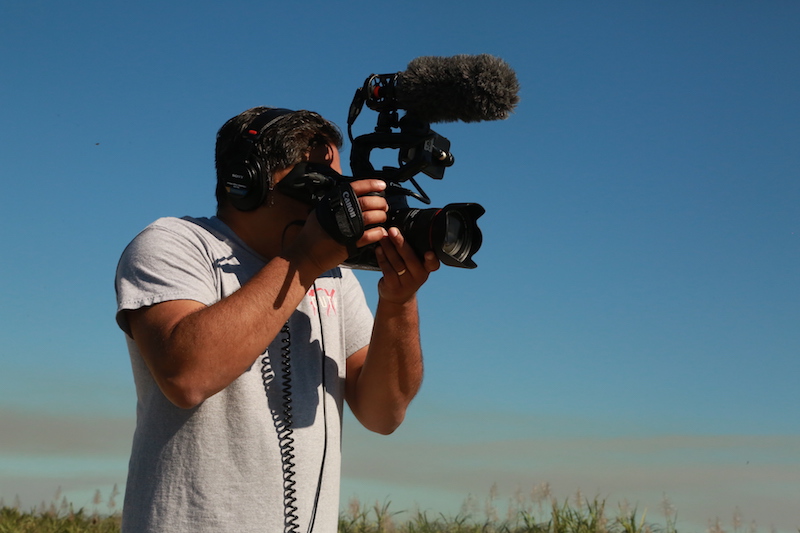
Bhawin Suchak.
“Ira moving down there gave us a presence there and, for Ira, part of the story—as we did in “The Throwaways”—is a personal lens on a larger story about discovering the roots of where his family came from and discovering the history and hard legacy of that town,” says Suchak.
McKinley’s mother and father met in Pahokee and lived there for a number of years until their work as migrant farmers led them to settle outside of Ithaca. McKinley’s father would bring him back to Pahokee periodically to visit family until 1970 when he was shot and killed by a police officer. McKinley lost connection to the town and his family there for decades.
While connecting with family members on Facebook, McKinley discovered a number of his relatives were in the NFL. It seemed like the film would focus on the importance football plays in raising the community’s self-esteem.
“In our first meetings this was very much a football-focused film,” says Suchak. “But I was always kinda like, ‘That’s great, football is great. I’ve always been a fan of sports documentaries, especially ones that take a deeper look at underlying social issues. But it’s been done before.’”
Suchak says that having McKinley in Pahokee has allowed them to connect to his dozens of family members and also put the larger story into perspective.
“Things really have come into focus for us this year. It’s a family story about Ira reconnecting with his roots and then the larger themes that are happening now—black families who migrated north rare realizing, ‘This really ain’t it!’ They want to go back. I mean you have to realize a lot of people left the south because they were getting killed, they were being lynched.”

Ira McKinley
The pair plan to film more this fall as Pahokee has a memorial for the victims of the Okeechobee hurricane. They have a lead on a woman who survived the storm and she’s agreed to an interview.
Suchak and McKinley have brought in members of Youth FX to help with the shoot. They hope the success of the documentary will, in turn, raise the profile of the program. “We want the kids to get on-the-job experience and we know the model needs to go in other communities. Kids need to see that you can do this, too,” says McKinley.

